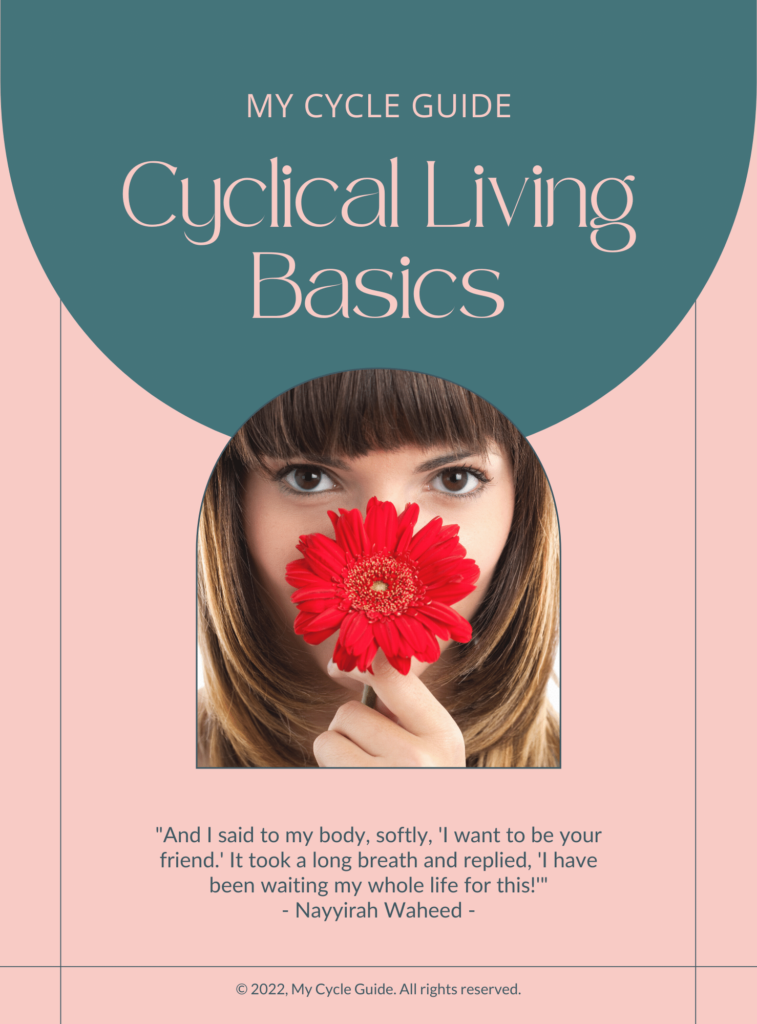What is an Anti-Inflammatory Diet?
An anti-inflammatory diet is all about eating foods that help fight inflammation and limiting foods that can cause it. This means that you should eat fruits, veggies, whole grains, lean proteins, and healthy fats—especially those packed with omega-3s. On the other hand, you’ll want to cut down on processed foods, refined carbs, and sugary drinks.
Why Bother with an Anti-Inflammatory Diet in Cyclical Living?
When you’re living in sync with your menstrual cycle, your diet can make a big difference. An anti-inflammatory diet can reduce period symptoms like cramps and bloating, which are often linked to inflammation. Plus, research suggests that an anti-inflammatory diet can help keep your hormones balanced.
How Can an Anti-Inflammatory Diet Affect Your Period?
What you eat can have a big impact on your menstrual cycle. An anti-inflammatory diet might help to ease period pain and bloating, and can also help keep your hormones in check, thanks to the beneficial nutrients in these foods.
Adding an Anti-Inflammatory Diet to Your Cyclical Living Routine
To incorporate an anti-inflammatory diet into your routine:
- Try to eat more anti-inflammatory foods during your period: This is when you might be dealing with inflammation and pain.
- Go for foods packed with omega-3s, antioxidants, and fiber: Think fatty fish, walnuts, berries, leafy greens, whole grains, and legumes.
The Benefits of an Anti-Inflammatory Diet
Switching to an anti-inflammatory diet has its perks like fewer menstrual cramps, better digestion, and a more balanced mood. An anti-inflammatory diet is full of brain-boosting nutrients, which might help keep your mood steady and manage stress. But it can also be a challenge to change how you eat, and you’ve got to make sure you’re still getting a balanced diet. So, always chat with your healthcare provider before making big changes to your diet.
Frequently Asked Questions about Anti-Inflammatory Diet and Cyclical Living
- What are some examples of anti-inflammatory foods? Think fruits, veggies (especially berries and leafy greens), whole grains, lean proteins, and anything packed with omega-3s (like fatty fish, flaxseeds, and walnuts).
- Can an anti-inflammatory diet help with period symptoms? Absolutely! It can help with period-related inflammation, like cramps and bloating. Plus, the nutrients in these foods can help keep your hormones balanced.
- Are there any downsides to an anti-inflammatory diet? Changing how you eat can be tough. Plus, you’ve got to make sure you’re still getting a balanced diet. If you’re thinking about making big changes to your diet, it’s best to chat with a healthcare provider first.
To understand more about your menstrual cycle, how to track it, and manage related issues, refer to our Free Workbook – Guide to Tracking Your Menstrual Cycle and accompanying Cyclical Living Basics eBook.
